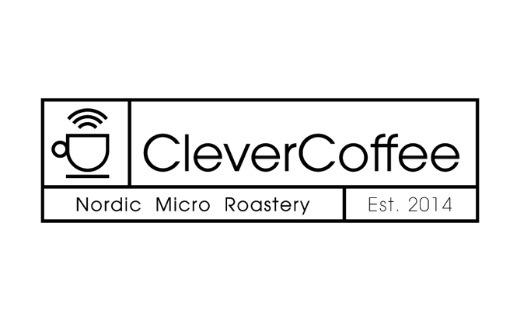

CleverCoffee

Central Denmark Region, Denmark
October 2021
Food products
Manufacturing
Denmark
CleverCoffee is a Danish full service coffee roastery. As experts in coffee, equipment and training, CleverCoffee helps the hospitality businesses, offices and consumers every step of the way towards more transparency in every drop of coffee while ensuring a better payment to the coffee farmers. CleverCoffee aims to drive a system change that has been underpaying coffee farmers for more than 30 years. They believe that coffee should be sourced in a sustainabl ethical way that is benefitting everyone in the value chain. Their coffees are of the highest possible quality and freshness. With long-lasting relationships with coffee farmers, CleverCoffee aims to create viable financial change that is imperative in order for the complete value-chain to create a positive impact on social and environmental performance. CleverCoffee releases a yearly Transparency Report reporting on the transparency and sustainability progress the company makes. The responsible company is also a part of the NetZero 2030 initiative. Alleviating the poverty that surrounds the coffee industry is a global issue. CleverCoffee believes that they can change the world - one cup of tasty coffee at a time. By drinking coffee from CleverCoffee you are joining the movement.
Overall B Impact Score
Governance 15.7
Governance evaluates a company's overall mission, engagement around its social/environmental impact, ethics, and transparency. This section also evaluates the ability of a company to protect their mission and formally consider stakeholders in decision making through their corporate structure (e.g. benefit corporation) or corporate governing documents.
What is this? A company with an Impact Business Model is intentionally designed to create a specific positive outcome for one of its stakeholders - such as workers, community, environment, or customers.
Workers 20.0
Workers evaluates a company’s contributions to its employees’ financial security, health & safety, wellness, career development, and engagement & satisfaction. In addition, this section recognizes business models designed to benefit workers, such as companies that are at least 40% owned by non-executive employees and those that have workforce development programs to support individuals with barriers to employment.
Community 27.2
Community evaluates a company’s engagement with and impact on the communities in which it operates, hires from, and sources from. Topics include diversity, equity & inclusion, economic impact, civic engagement, charitable giving, and supply chain management. In addition, this section recognizes business models that are designed to address specific community-oriented problems, such as poverty alleviation through fair trade sourcing or distribution via microenterprises, producer cooperative models, locally focused economic development, and formal charitable giving commitments.
What is this? A company with an Impact Business Model is intentionally designed to create a specific positive outcome for one of its stakeholders - such as workers, community, environment, or customers.
Environment 25.2
Environment evaluates a company’s overall environmental management practices as well as its impact on the air, climate, water, land, and biodiversity. This includes the direct impact of a company’s operations and, when applicable its supply chain and distribution channels. This section also recognizes companies with environmentally innovative production processes and those that sell products or services that have a positive environmental impact. Some examples might include products and services that create renewable energy, reduce consumption or waste, conserve land or wildlife, provide less toxic alternatives to the market, or educate people about environmental problems.
What is this? A company with an Impact Business Model is intentionally designed to create a specific positive outcome for one of its stakeholders - such as workers, community, environment, or customers.
Customers 0.0
Customers evaluates a company’s stewardship of its customers through the quality of its products and services, ethical marketing, data privacy and security, and feedback channels. In addition, this section recognizes products or services that are designed to address a particular social problem for or through its customers, such as health or educational products, arts & media products, serving underserved customers/clients, and services that improve the social impact of other businesses or organizations.